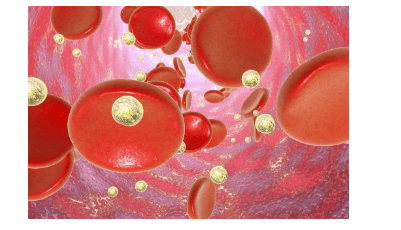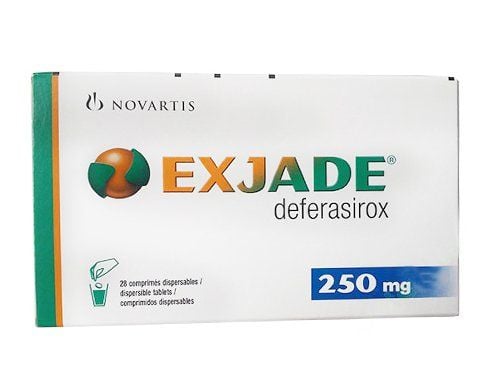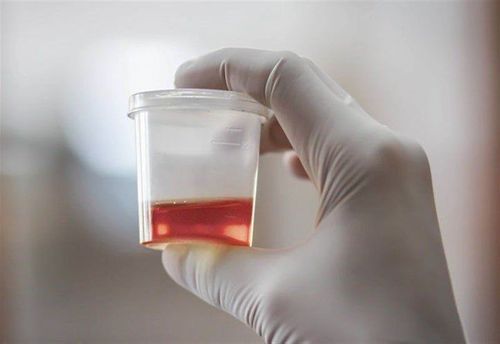This is an automatically translated article.
The article is professionally consulted by Master, Doctor Nguyen Thi An - Pediatrician - Neonatologist - Department of Pediatrics - Neonatology - Vinmec Ha Long International HospitalAnemic newborn baby what to do? This must be the question many people ask when preparing to welcome the birth of their baby. In order to come up with the most suitable method and also handle it most satisfactorily, here are a few points. All will explain and support the best solution to prevent anemia in young children.
1. Origins and reasons why infants are at high risk of anemia
Red blood cells begin to secrete hemoglobin when your baby is 2 weeks old. After about a month, the liver will control the production of red blood cells. As a result, a certain amount of hemoglobin is transferred to and provides nutrition to the fetus.Before the mother enters the 30th week of pregnancy, the baby's spinal cord has begun to form a mechanism to produce blood cells. Between weeks 13-25, your baby's red blood cells will be limited in size. At the same time, they rapidly increase in number to contain enough blood to feed the body. When the baby is about to be born, the red blood cells are also perfected and guaranteed to function as separate individuals without the support of the mother.
After birth the baby can be found to be anemic. Based on statistics, there are common causes of anemia in babies:
Children with genetic disorders of the genetic codes Sickle cell syndrome is one of the causes of anemia in children. Infant. They usually occur when the body encounters an abnormal disorder in metabolism. In addition, when the globin structure is affected, it will also lead to dangerous congenital hemolysis for the child.
Loss of red blood cells When injured, the amount of blood lost can't be restored, which also leads to anemia. Nosebleeds are also listed in this case.
Hematopoietic dysfunction of the spinal cord When the hematopoietic function of the marrow is not working properly, blood cells will not be produced. This disease usually occurs because you take compatible drugs or your body has an infection.
In short, the main cause of anemia is iron deficiency. So what to do in an anemic infant? There is no other way but to provide foods with enough iron and at the same time maintain healthy living habits for your baby.
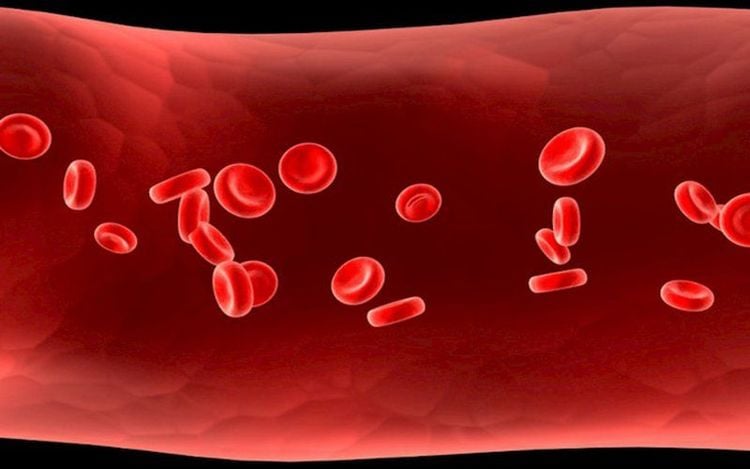
Có nhiều nguyên nhân gây ra tình trạng thiếu máu ở trẻ sơ sinh
2. Group of infants at risk of anemia
Neonatal anemia is usually discovered when the baby is under 2 years of age. This is an age with a high risk of disease and little attention. Early detection can reduce the harm caused by anemia directly affecting the child.Premature babies from 32 weeks have a higher risk of anemia. Premature babies mean some organs are still defective. Usually babies will have a pre-stored amount of iron for consumption 4-6 months after birth. However, if the baby is born prematurely, this amount will decrease by about 50%. So the baby will not have enough time to compensate as well as provide for the body.
Babies drink cow's milk too early Doctors often advise babies to drink cow's milk when the baby is over 1 year old. The main reason is that cow's milk does not have enough iron for the baby to absorb. At the same time, the fat in milk will make the child feel full, so it is difficult to supplement through food. At the same time, this milk also causes irritation of the intestinal lining leading to bleeding. If the intestinal bleeding is not detected, it will make anemia in the child worse.
Children who only eat breast milk without additional solid foods Breast milk is a natural source of nutrients that are intelligently synthesized by the mother's body. However, when it comes to the age of weaning, the baby's needs increase while the quality of milk remains the same. For that reason, mothers need to give their children more nutritious food groups to provide enough vitamins and iron.
Babies born at 40 weeks but still at risk of anemia Formula milk is not a last resort. There are many types of milk on the market and the ingredients are not the same. When choosing milk for children, mothers need to ensure that they provide enough iron and essential substances for the baby's development.
3. Consequences if anemia is not resolved for children
Anemia causes many dangerous syndromes to human health, not only for children. However, in terms of research in infants, anemia will lead to dangerous complications that greatly affect the baby in adulthood.Children with anemia, their body will be slow to develop. Not only in physical but also intellectual and spiritual children are also inferior to peers. This will affect the child's cognitive and psychological well-being. When the body is anemic, the organs will not receive enough nutrients from the blood. Gradually, the body's weakened resistance also decreases sharply.
4. What to do with color-deficient babies?
There are 2 ways that is supplementing iron directly or supplementing through food. This needs to be maintained and done for a long time to be effective.5. Anemic children must be diagnosed accurately?
Diagnosing anemia in newborns is a matter of concern for many parents. For early detection and prevention, you can have a red blood cell test or iron test to make a conclusion.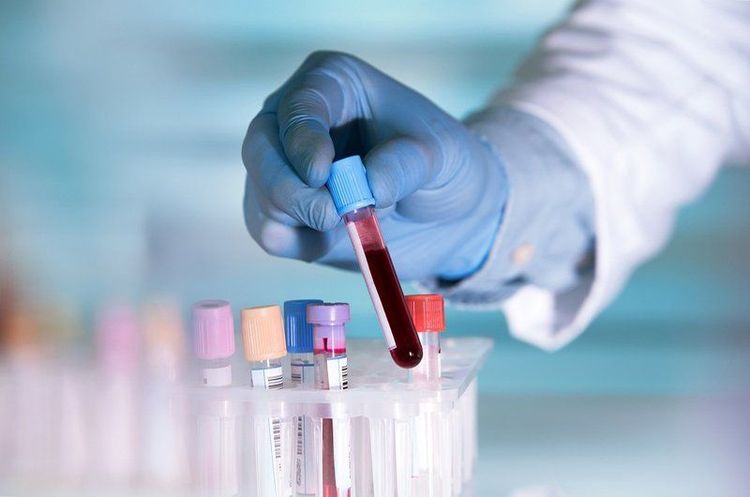
Trẻ sơ sinh bị thiếu máu có thể chẩn đoán qua các xét nghiệm cận lâm sàng
6. Methods of preventing anemia in infants.
Preventing anemia for children is no longer too difficult if you know it early. At the same time, with a guaranteed diet, the problem is also solved.Prevention of anemia for babies during the period of exclusive breastfeeding Mother's body will provide the baby with a sufficient amount of iron during this time. At the same time, the baby is synthesized more from breast milk. On average, according to nutritional analysis, babies who consume about 800 ml of breast milk will be supplemented with 0.35 mg / liter of iron.
After that, this amount of iron will gradually decrease, so you need to add iron-rich foods in combination with iron as prescribed by your doctor.
Newborns begin to eat solid foods When the baby is 6 months old, the need for solid foods begins. At this time, the body has grown and needs to be replenished more. Therefore, food groups from beans or whole grains are good choices for children. At the same time, babies need to be loaded with vitamin C to increase iron absorption.
Premature babies Because the baby's body cannot synthesize iron, so the baby needs to pay attention to iron supplements through drinking and food.
Above are some answers to the question of what to do with anemic children. Contact your doctor if you need an early diagnosis for your child.
Iron deficiency anemia can cause dangerous complications for children's health and mental health, so parents need to observe and timely supplement this important source of vitamin.
In addition to dietary supplements, parents can give their children supportive foods containing iron and essential micro-minerals such as zinc, lysine, chromium, selenium, vitamin B... to help meet their full needs. meet the nutritional needs of children. At the same time, these essential vitamins also support digestion, enhance nutrient absorption, help improve anorexia, and help children eat well.
>> Parents can learn more: What disease can iron deficiency cause? The article was professionally consulted by Dr. Phan Dinh Thuy Tien - General Internal Medicine - Department of Examination & Internal Medicine - Vinmec Nha Trang International General Hospital.
Please regularly visit Vinmec.com website and update useful information to take care of your baby and family.




